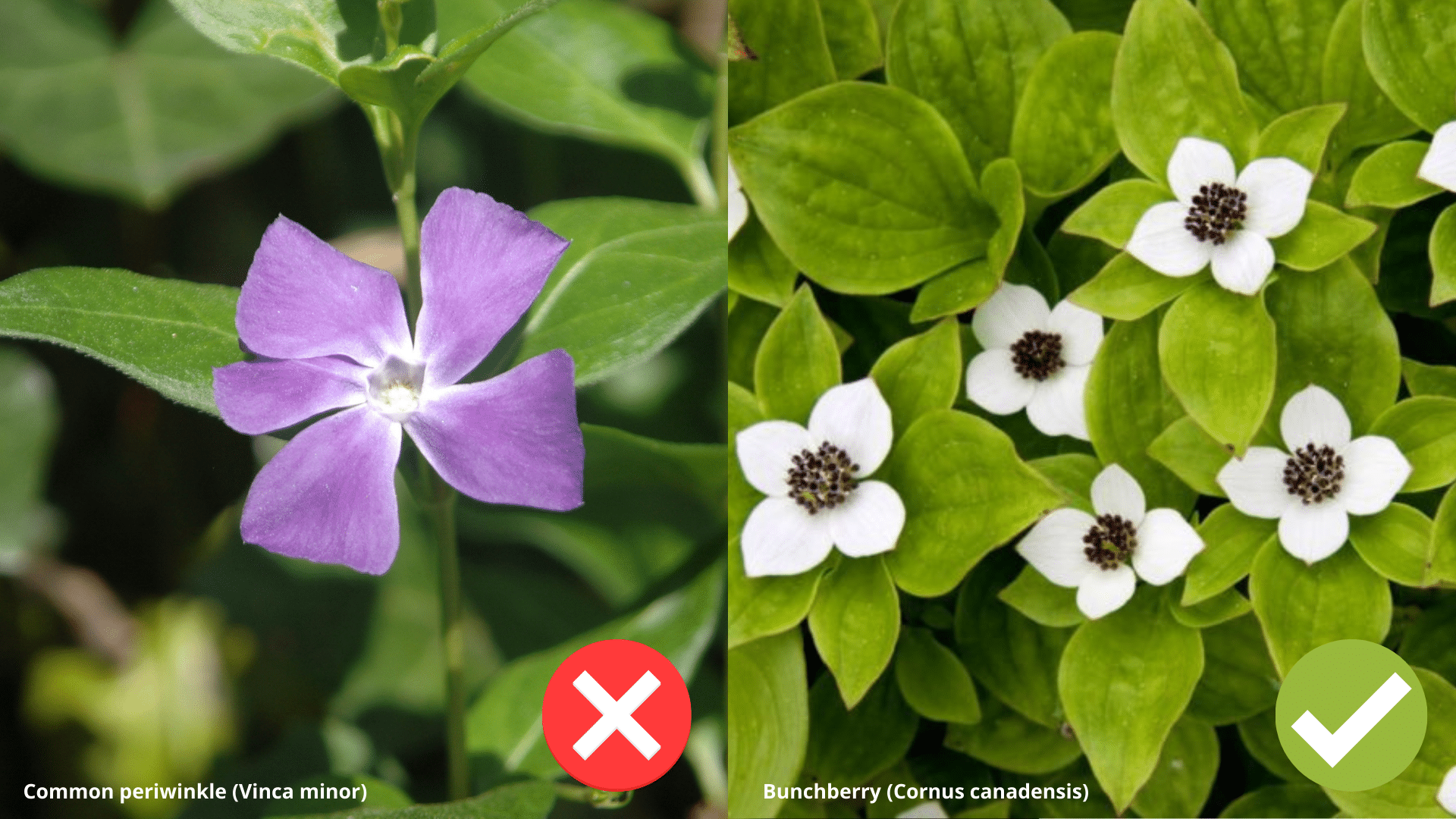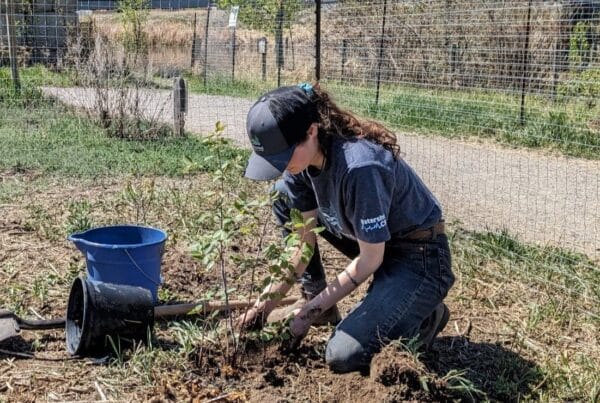May 20th, 2022
Each year, sponsors make Invasive Species Action Month outreach, contests and communications possible. Our 2022 sponsors have a range of involvement with invasive species. From incorporating our behaviour change programs into daily operations to encouraging clients to integrate Invasive-Wise strategies into their lives, they all take an active role in curbing the spread of invasive species in our province. We are deeply grateful to our sponsors, and this year we thought we’d ask them some big questions. Their answers are fascinating, and inspiring.
When did you first learn about how serious a threat invasive species are to our landscapes and communities?
Setetkwe Environmental: The vast distance of our operations means that we have rapidly learned the large variety of invasives through multiple bio-zones. From wild mats of Yellow hawkweed in the north, rapidly expanding clusters of Common tansy and Hoary alyssum near Barriere, and kilometers of Himalayan blackberry at the coast, we are seeing first-hand the diversity of invasives and the problems they cause in various habitats.
Carleton Landscaping: 9 years ago, when we first started learning about native plants to help pollinators, songbirds and hummingbirds. And finding out most of our planted garden plants were exotic ornamentals.
Quality Garden & Pet:
Lorenzo: When living in Australia, I was involved in our local bush care group, learning about the many introduced invasive plants taking over the bush. The passion for removing invasives continues here in BC.
Nara: I lived in England when the fear over Japanese knotweed spreading was truly cited in murder and suicide cases and the impact it can have on property values was a key plot line in TV shows and a novel. I was astonished when I moved back to the Coast to see it blooming everywhere!
Enbridge: As a responsible owner/leaser of land, Enbridge has been actively managing invasive species in British Columbia for many decades and has specifically been involved with ISCBC since 2009.
Can you remember a story in your organization or company that involved a customer or project and an invasive species?
Carleton Landscaping: We have a client who has transformed their yard into almost 80% native plantings, where before there were borderline invasive clonal type species. They have seen an incredible amount of biodiversity come back to their property. They were so ecstatic about the results in their own gardens that they asked us to manage the riparian area behind their property. It has been 2 years now and we have removed all the Himalayan blackberry, Goutweed, and Periwinkle from the area, and replaced it with native trees, shrubs, and plants.
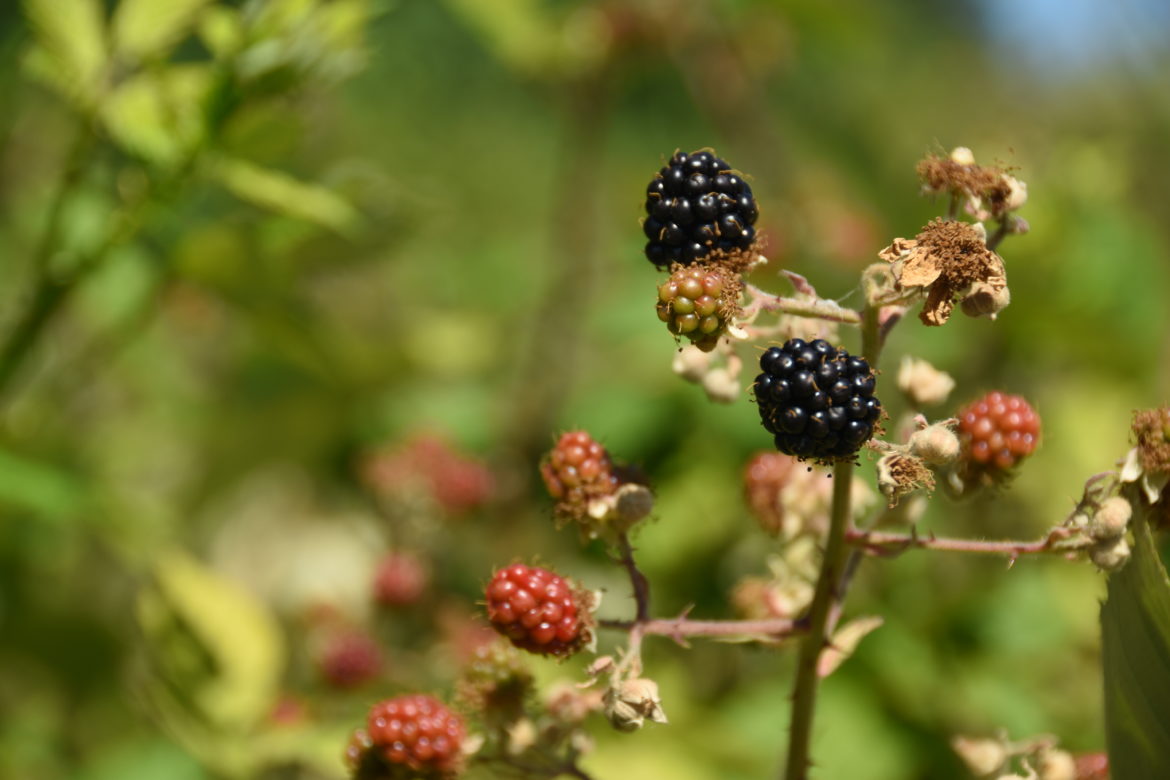
Setetkwe Environmental: We like to think that when we control invasives in the gravel pits and roadsides, we are helping to reduce the spread of invasives, and hopefully we are contributing to the overall ongoing battle in our province.
Quality Garden & Pet:
Lorenzo: A customer wanted to plant ivy to cover a trellis in a shady area. We recommended and sold them the ‘Sausage vine’ Holboellia coriacea, which is evergreen, with fragrant flowers, and thrives in partial to full shade.
Nara: We still get folks asking for certain invasive plants, Periwinkle being an almost weekly request. Most customers are very appreciative of the education about invasives and keen to learn about alternatives. We can barely keep the Grow Me Instead brochures topped up!
Enbridge: The best stories are from the many occasions in which Enbridge has collaborated successfully with landowners to control invasive species on the landscape. We share successes and challenges with stakeholders and learn from each other.
What is an “invasive-wise” practice that you would recommend to your community?
Carleton Landscaping: Learn about native plants in their area and choose native plants for their gardens!
Quality Garden & Pet:
Lorenzo: Firstly, don’t plant invasives. Be mindful of how you dispose of garden waste as home composting does not often reach high enough temperatures to kill the seeds.
Nara: Tackle the worst offenders first. Daphne laurel, English holly, and Himalayan blackberry are easiest to pull out as small seedlings. Nip them before they get the chance to grow strong roots. It’s actually quite therapeutic chasing out the stolons of Periwinkle and Yellow archangel in the spring or autumn when the soil is wet.
Enbridge has a great appreciation for the PlayCleanGo® Stop Invasive Species In Your Tracks® campaign and the company uses PlayCleanGo® resources to help inform employees and contractors about helpful practices to protect the land. As pipeline right-of-ways are on public land – and often used by the public accessing these corridors – Enbridge encourages everyone to learn more about the PlayCleanGo® public education campaign.
About our 2022 Sponsors:
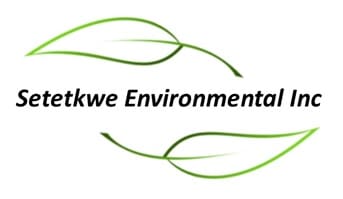
Setetkwe Environmental Inc is an Aboriginal-owned company based in the North Thompson Valley. Created in 2015, they treat invasive and noxious weeds on the TransMountain Pipeline from Valemount to Kamloops and Chilliwack to Westridge Terminal. Setetkwe Environmental also battles invasives along forest service roadsides and in gravel pits in the Interior.

Carleton Landscaping is a Vancouver based landscaping company focused on native plants and ecological restoration.
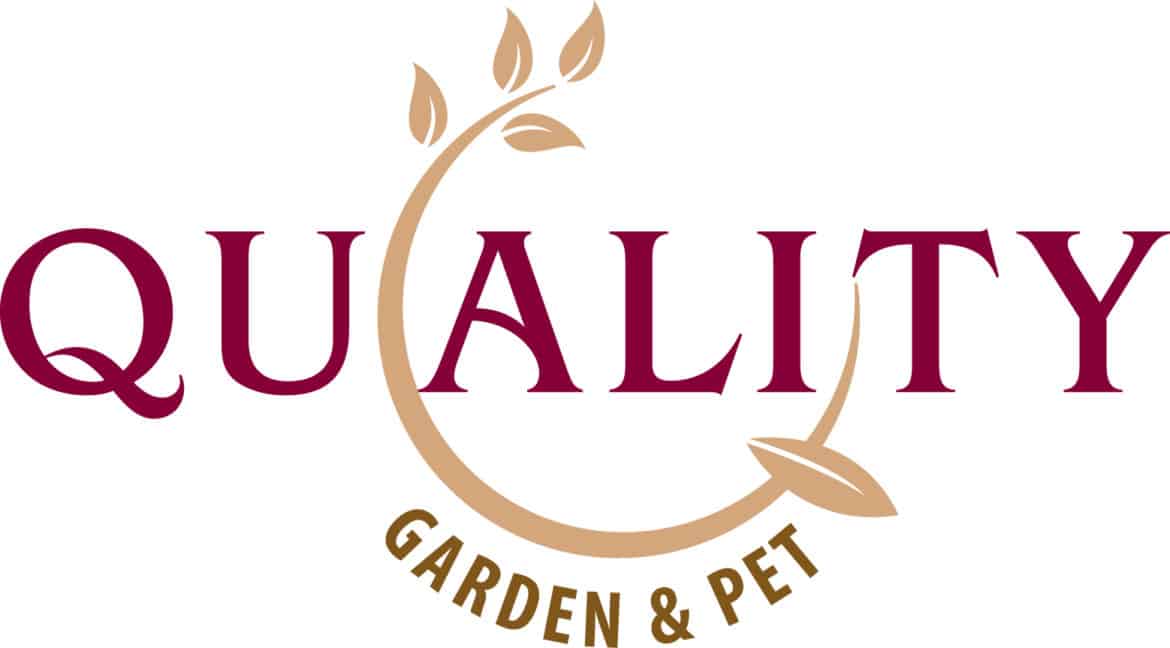
Quality Garden and Pet is a full-service garden centre, feed, and pet store in Gibsons on the beautiful Sunshine Coast.

Enbridge is North America’s leading energy infrastructure company. The company transports, distributes and generates energy, with diversified assets that include a balance between crude oil and natural gas, as well as an expanding renewables business. In British Columbia, Enbridge operates the Westcoast Energy Natural Gas pipeline system.
Share


